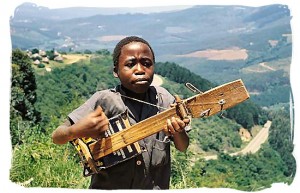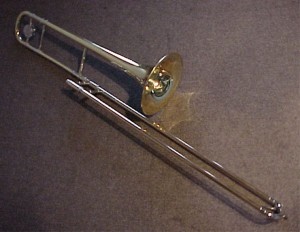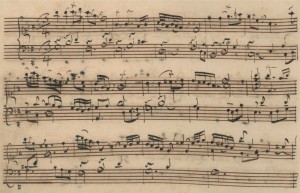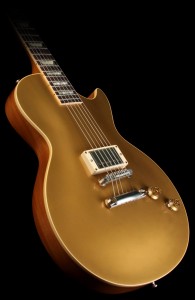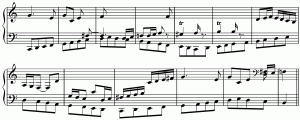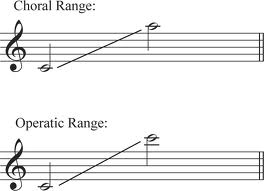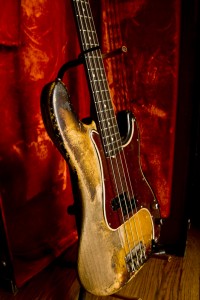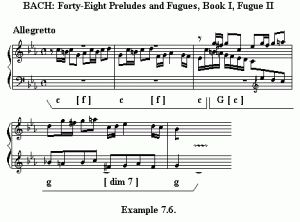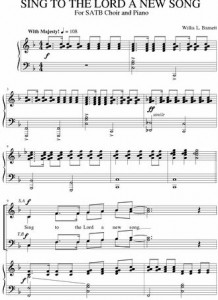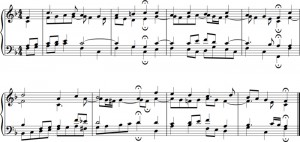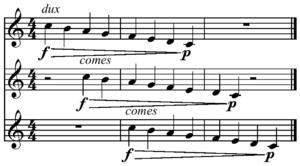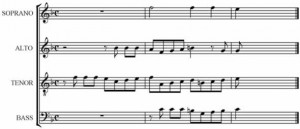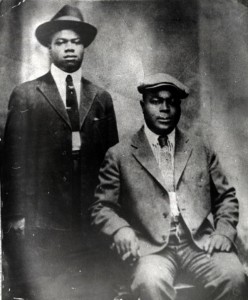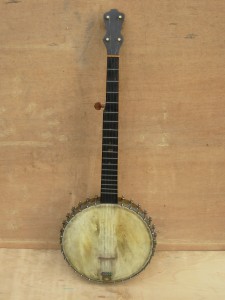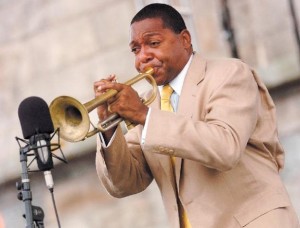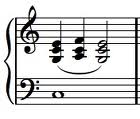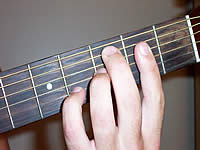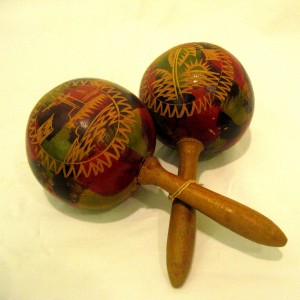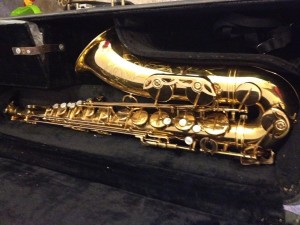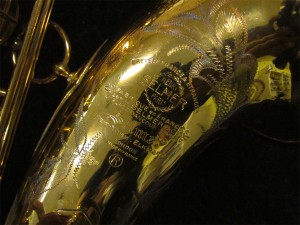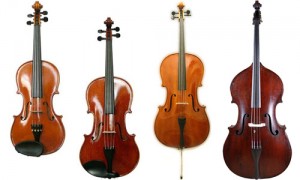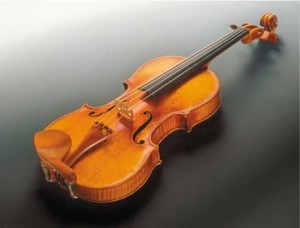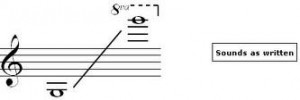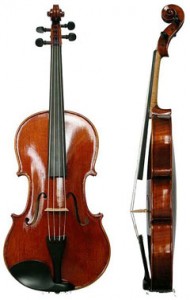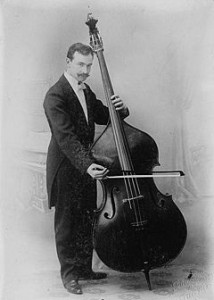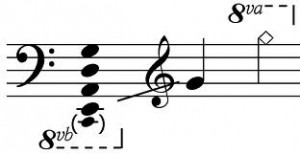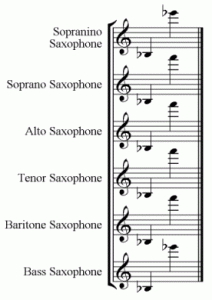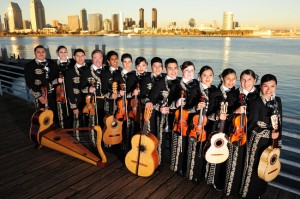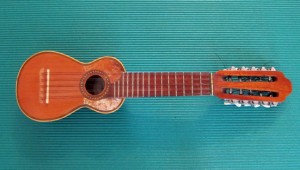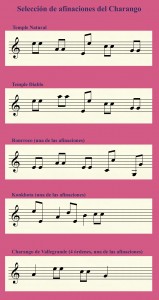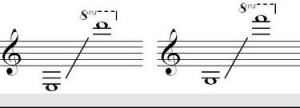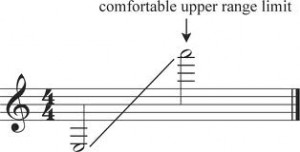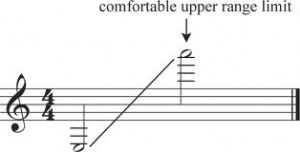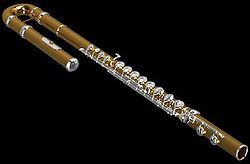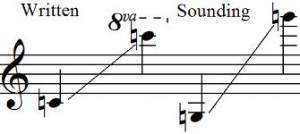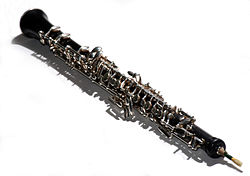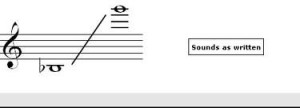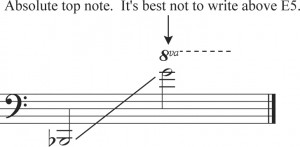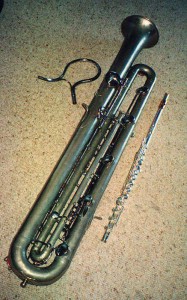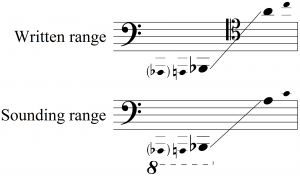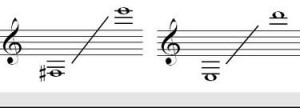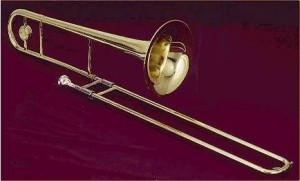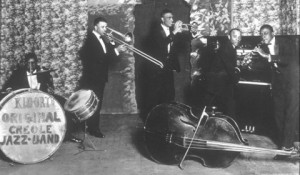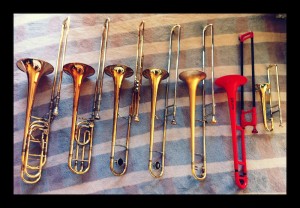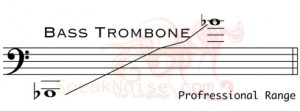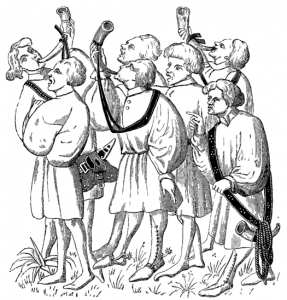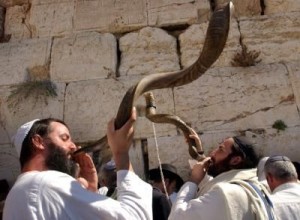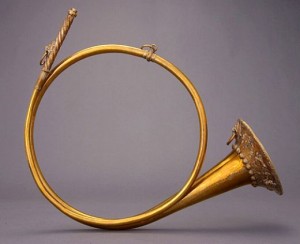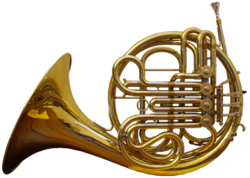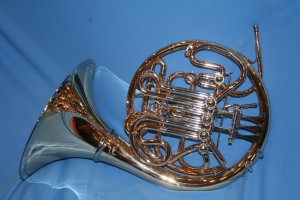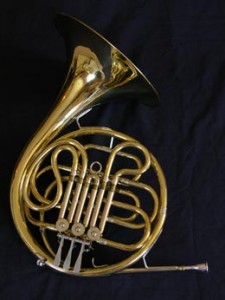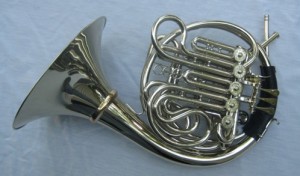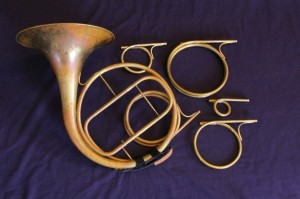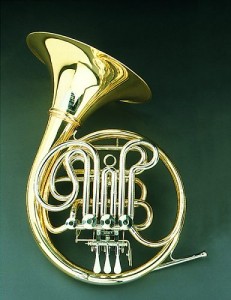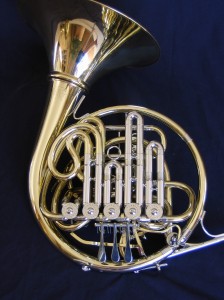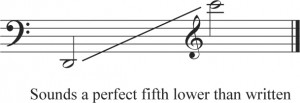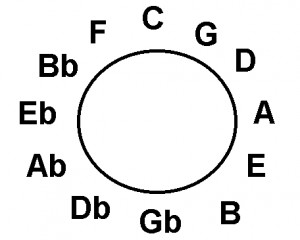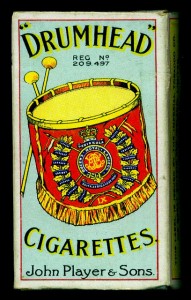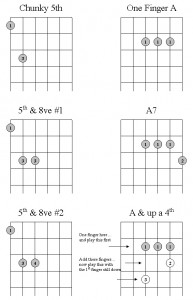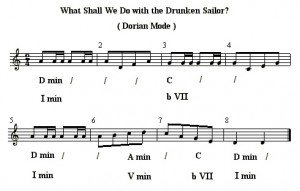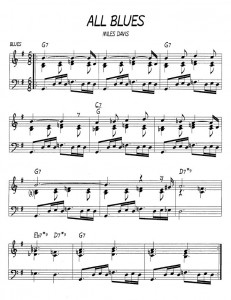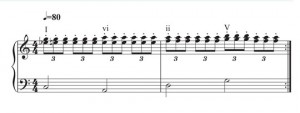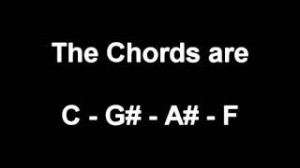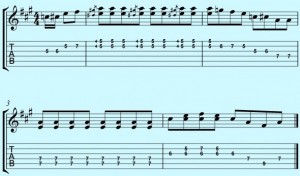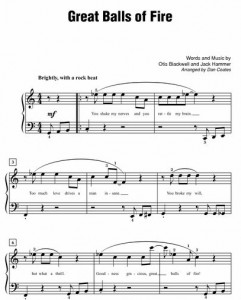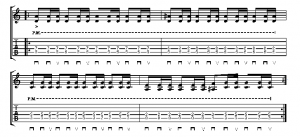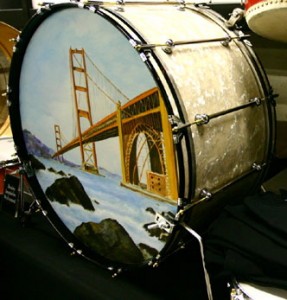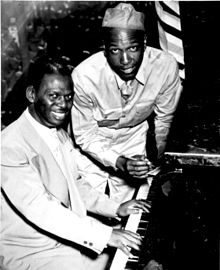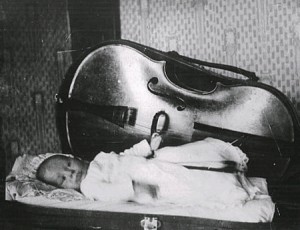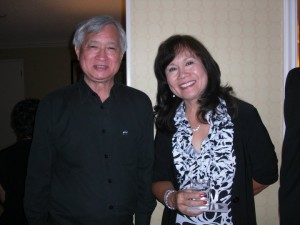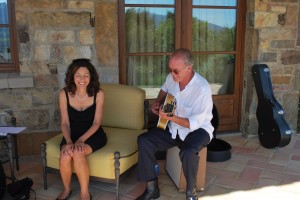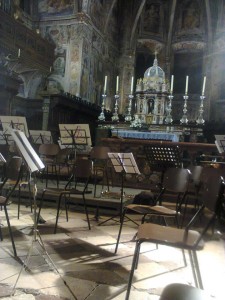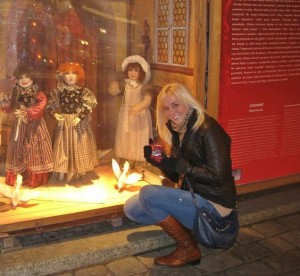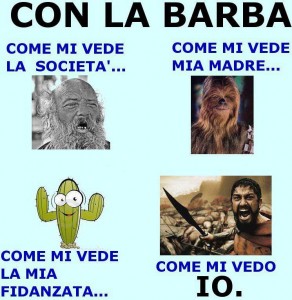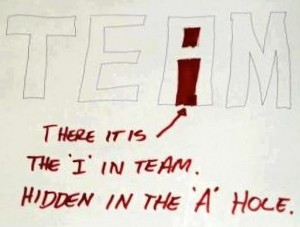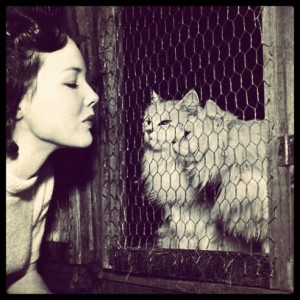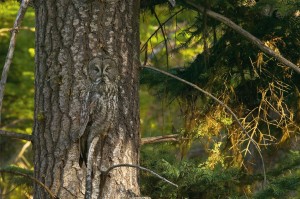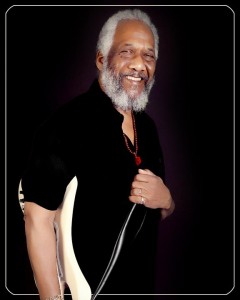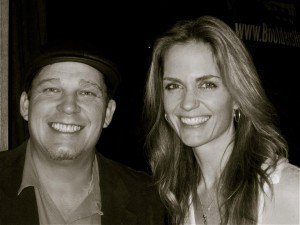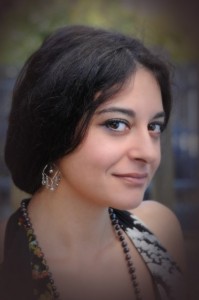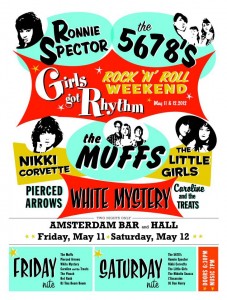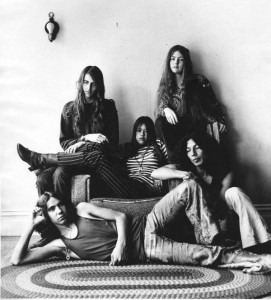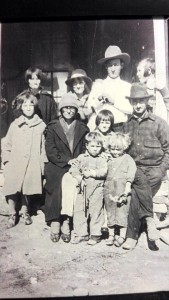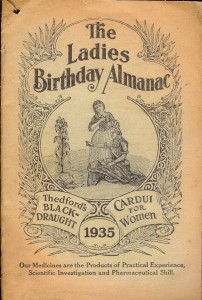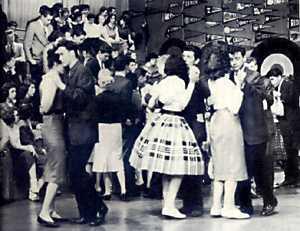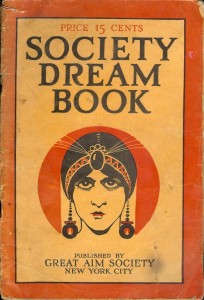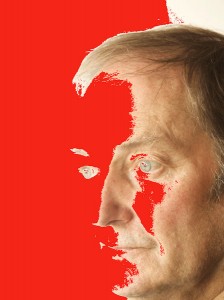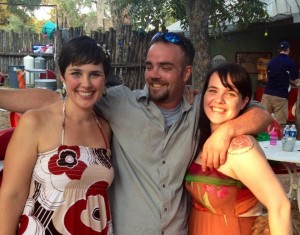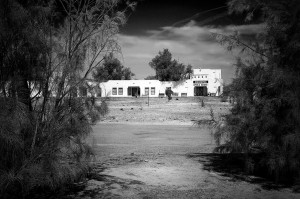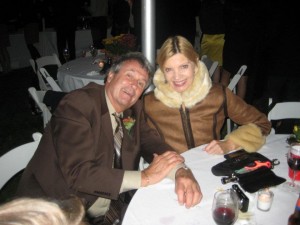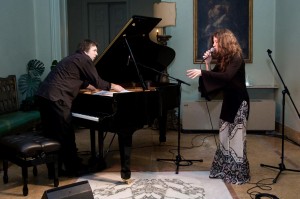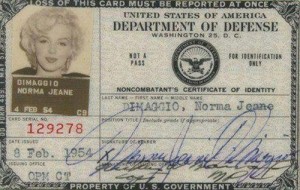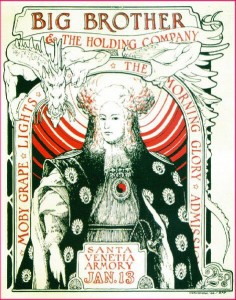Names are fascinating. They are capsules of history and drama. Everyone has a name and every name has a meaning. Some names have many meanings. If you’re interested, you can even find your surname meaning at sites like genealogybank.com.
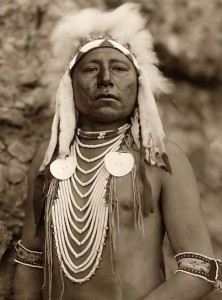
You will notice, in the meanings of the names below, that the phrasing sounds Native American. That is because Yankees, confronted by unpronounceable Native American names, translated almost all of them, and so the nomenclature sounds very basic, but all names sound very basic when translated.
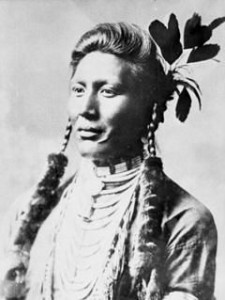
To the Romans, this man would be Nero Falco. We dont know how his name sounded to his own people. The settlers called him Black Hawk, which is English for Nero Falco. Hear God Man sounds Native American, doesnt it? Its Sam Andrew. How about Rock River Lake Color? Thats Ishikawa Akane, a Japanese name. Wolfway LoveGod? Wolfgang Amadeus. Pedro Aguilar is rock eagle, and so it goes.

Lee is the most frequently heard family name (surname) on Earth, because it is very common in China (where it is the second most popular name) and also well known in the West (Robert E. Lee), although Lee East and Lee West have different meanings.

If someone says, Its just a name, meaning its just a sound, s/he hasnt considered the matter enough. A name is never just a name.
Li (?)
The word name comes from Old English nama; related to Old High German and Sanskrit ????? (naamas), Latin nomen, and Greek ????? (onoma), possibly from the Proto Indo European (PIE) *nomn.

Adam Hebrew: ????? Arabic: ???

In the Old Testament, the names of individuals are meaningful, just as they are everywhere else. Adam is named after the earth (Adamah) from which he was created, and his name has come to mean man in the Semitic languages.

Arabic: ??????? ?Ibr?h?m Abraham
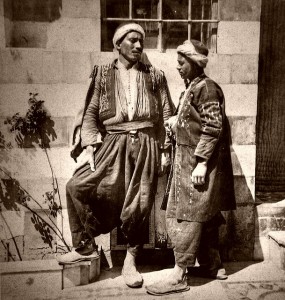
A change of name indicates a change of status. For example, the patriarch Abram and his wife Sarai were renamed Abraham and Sarah when they were told they would be the father and mother of many nations (Genesis 17:4, 17:15). Simon was renamed Peter when he was given the Keys of Heaven (Matthew 16). Saul became Paul on his way to lawyering for Christ.
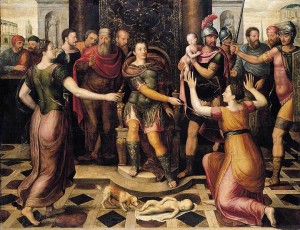
Solomon meant peace, and the king with that name was the first whose reign was without warfare.
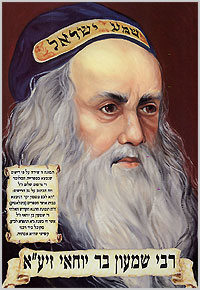
Jews in the Torah did not have surnames which were passed from generation to generation but instead used patronymics, that is, they were typically known as the child of their father. For example: ??? ?? ??? (David ben Yishay) meaning, David son of Jesse. Sons used their fathers first names as their own surnames, as is still done by most Muslims today. The ben in Jewish names is replaced by bin or ibn for Muslim males, binte, binti or ibnu for females. Sometimes names include Al-, Ali-, -allah, -lah/-llah or -ullah meaning a servant to God or Gods servant.
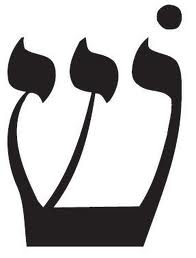
Onomastics is the study of proper names of all kinds and the origins of names. The word is from Greek: ??????????? (onomastikos), of or belonging to naming from ?????, name. Toponymy or toponomastics, the study of place names, is one of the principal branches of onomastics. Anthroponomastics is the study of personal names.

Japanese names (?????? nihonjin no shimei) consist of the surname, followed by a given name. Middle names are not generally used. The name above is Yamada Taro. Yamada is the surname (family name) and the four characters mean mountain rice field great son, although Japanese dont think of the meaning of the name that way, just as we do not think of the meanings of John and Smith when we say John Smith.
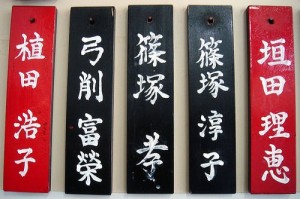
Japanese names are usually written in kanji, as they are here. There are usually, but not always, two characters for the surname which comes first and two characters for the given name.

Japanese names are often written in kanji, which are characters of Chinese origin. The kanji for a name may have a variety of possible Japanese pronunciations, but parents might use one of the other writing systems such as hiragana or katakana, or even romaji, our alphabet, when giving a birth name to their newborn child.
???
Male names often end in -r? (? son, but also ? clear, bright; e.g. Ichiro) or -ta (? great, thick; e.g. Kenta), or contain ichi (? first [son]; e.g. Kenichi), kazu (also written with ? first [son], along with several other possible characters; e.g. Kazuhiro), ji (? second [son] or ? next; e.g. Jiro), or dai (? great, large; e.g. Daiichi).

The female name Akane (???, ???) is the Japanese word for madder (?, Akane, Rubia cordifloria) and is associated with red (from the red dye made from its roots). I love to use this color when I paint.

Female names often end in -ko (? child Aiko) or -mi (? beauty; e.g. Yumi), although many modern Japanese women no longer use -ko which they see as a diminution.
??
Other popular endings for female names include -ka (? scent, perfume or ? flower; e.g. Reika) and -na (?, or ?, meaning greens; e.g. Haruna).

Abigails name means my father is joy (Hebrew) ??????????

Adina: ???????? (adina) slender, delicate

Aguilar: El apellido Aguilar proviene de la palabra con que se designa al αguila. Aguilar comes from a word that means eagle.

Tiene el mismo origen que Aguiar. Maybe Aguiar came first. At any rate, both from aquila, Latin, eagle.

Albert: From the Germanic name Adalbert, which was composed of adal noble and beraht bright. The Normans introduced it into England, where it replaced its near Anglo Saxon relative Ζπelbeorht.

Albin: Le prιnom ancien Albinus est inspirι du terme latin albus qui signifie blanc. Aubin (the same name as Albin) fut un prιnom assez rιpandu dans la France rurale davant la Rιvolution. Il est ensuite devenu rare mais a retrouvι vie depuis les annιes 1980. Albin comes from albus white and is also from and related to Albanus, Alban.

Alexander: ?????????? defending men from Greek ????? (alexo) to defend, help and ???? (aner) man (genitive ??????).
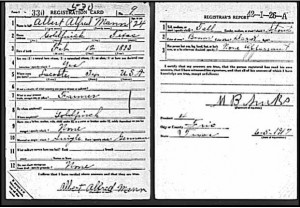
Alfred: alf supernatural being elf rad, red wise, counsel (Rathaus Ratskeller). The Rathaus is the central building in every German town and is the city hall. The Ratskeller is down in the basement (cellar) where food and drink are served. The red in Alfred is the same as rat, rad, red. Reden is speak. Kein Wort reden. Dont say a word.

Allen: Variants are Allen, Alain. In Breton, Alan is a colloquial term for a fox and may originally have meant deer, making it cognate with Old Welsh alan. The Irish form of the name may be a diminutive of a word meaning rock. For example, the modern Irish ailνn means little rock. The Alans were an Indo Iranian people who lived north of the Caucasus Mountains in what is today Russia. According to historian Bernard Bachrach, the Alans settled in parts of what is today France, including Brittany, in the early Middle Ages.

Alma: Latin almus, which means kind, fostering, or nourishing, most familiar from its use in the term alma mater which means fostering mother. Alma in Spanish is soul, and it is one of those words like programa, artista, mano, which are contrary to rules of gender. El alma, el dia, el programa, el artista, la mano. These are tricky for the beginning Spanish learner. In French, la main. This is because manuus in Latin is a fourth declension feminine noun. It looks masculine, but its feminine. Also la mano in Italian.

Alvin, Alvina: elf friend; noble friend. From the elements aelf meaning elf, supernatural being + aethel meaning noble, honorable + wine meaning friend. The first name is derived from both the old forms Aelfwine (Old English) and Aethelwine (Old English), which gave rise to the forms Alwin or Alewyn after the Norman Conquest.

Andrew: (Greek) man ???????, which was derived from ???? (aner) man (genitive ?????? andros of a man). Andrew was the first apostle mentioned in the New Testament. He was the brother of Peter. Both of these names are Greek, and Andrews real Aramaic name is not known.

The surname Andrew was one of the earliest settler names in America, Anthony Andrew being recorded in the first listings for the state of Virginia in 1623. The very first recorded spelling of the family name anywhere, is probably that of William Andreu, which was dated 1237, in the ancient charters of the county of Buckinghamshire, England, in the year 1237.

Anna: Form of Channah Hannah

Anthea: feminine form of Antaeus, son of Poseidon. Can also be derived from the Greek for flowery blossom, as my friend Anthea wrote: Greek literal meaning flowering.. to flower.. ?????, ?????, ???????, ????? a goddess AnThea flowering goddess?

Antea is the Italian version of Anthea.

Anthony: Marcus Antonius, the general (Shakespeares Marc Antony), said that his name came from Anthon, son of Hercules.

Antonia: Derived from the Latin Antonius, an old Roman family name of unknown etymology, probably dating from the Etruscans. origin of the name was Anthon, son of Hercules.
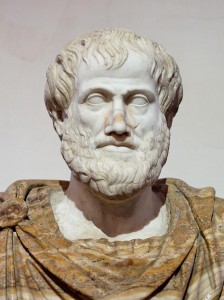 ossibly m
ossibly m
Aristotle: ??????????? excellent purpose. Derived from aristos meaning best, excellent ; telos meaning purpose.

Arnold: Old High German Arenwald, having the strength of an eagle, from arn eagle + wald power. The phrase Oy gewald is related to this name. Hφhere gewald is Yiddish for an act of providence.

Arthur: could be derived from the Roman nomen gentile Artorius, possibly of Etruscan origin. King Arthurs name only appears as Arthur, or Arturus, in early Latin Arthurian texts, never as Art?rius (although Classical Latin Art?rius became Arturius in some Vulgar Latin dialects).
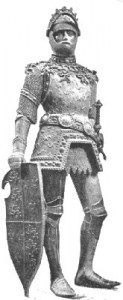
Arthur could also be derived from a Brittonic patronym *Arto-r?g-ios (the root of which, *arto-r?g- bear-king is to be found in the Old Irish personal name Art-ri) via a Latinized form Art?rius.
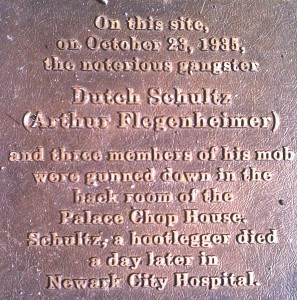
Yet another possible etymology of Arthur could be from the Latin Arcturus, Greek ?????????, the brightest star in the constellation Boφtes, near Ursa Major or the Great Bear, ultimately from ?????? (arktos), bear + ????? (ouros), watcher, guardian.

Barak: ?????? (Hebrew) lightning

Barbara: ???????? foreign She is the patron of architects, geologists, stonemasons and artillerymen. The Greeks thought that non Greeks sounded as if they were saying bar bar over and over, so they called them ????????.
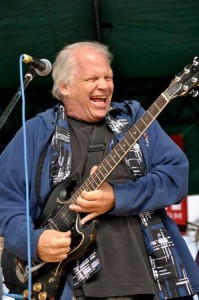
Barry: English form of the Irish names Bareth (short for Fionnbharrth), de Barra, Barrath, Barenth, Barold, Bearrach or Finbarr. The Irish meaning is spear. Also, a nickname for Bartholemew, Baruch.

Bartholemew: ???????????? Greek form of an Aramaic name Talmai meaning son of. In the New Testament Bartholomew is the byname of an apostle also known as Nathaniel.

Benjamin: The Hebrew word  (ben) son, and the Hebrew noun
(ben) son, and the Hebrew noun  (yamin), meaning right hand or right side, but with many connotations. The right hand was seen as the seat of ones power. When facing east, the right hand is on the south, so Yemen means Southland. The name Benjamin means Son Of The Right Hand (meaning, Son Of Strength; Son Of The South).
(yamin), meaning right hand or right side, but with many connotations. The right hand was seen as the seat of ones power. When facing east, the right hand is on the south, so Yemen means Southland. The name Benjamin means Son Of The Right Hand (meaning, Son Of Strength; Son Of The South).

Berg: Mountain From Middle English bergh, berg, from Old English berg, beorg (mountain, hill), from Proto-Germanic *berghaz, from Proto-Indo-European *b?erg? (height). Cognate with Dutch berg, German Berg, Swedish berg, and Russian ????? (bιreg).

Bjorn: Bear From Old Norse bj?rn (bear), from Proto-Germanic *bernuz, northern form of Proto-Germanic *berτ, probably from Proto-Indo-European *b?er- (brown, shining).

Bridget: Celtic/Irish from the noun brνgh, meaning power, strength, vigor, virtue. There was a tribe in England/Ireland called the Brigantes and Bridget is thought to come from this name also. The name was so popular for Irish girls that Biddy (nickname for Bridget) was used as a slang term for an Irish girl in English speaking countries. I have often heard old biddy but did not realize that it was Bridget or even Irish.

Bruce: Norman surname, which originated in Britain with Robert de Bruis, a baron listed in the Domesday Book. His son, a friend of David I, king of Scotland, was granted by that king the lordship of Annandale (1124), and Davids son, Robert, founded the Scottish House of Bruce.
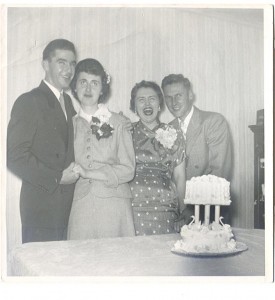
Bullis: (Cambridgeshire): Middle English bulehus bull house, from bul(l)e, bol(l)e bull + h(o)us house. Latvian: nickname or metonymic occupational name from bullis bull.

Burkhardt The name is first found in Swabia (Burkhard, Burkhart, Burckhardt, Burket and Burkett): from an Indo European root bhergh (high) hill and hill-fort and descendant words relating to city. Burg (city in Old Saxon, Old High German and Old French) evolved into borough. This word is present in such names as Barrow, Strasbourg, Statesboro and Freiburg. A caution here: burg is city and berg is mountain. They are easily confused. The second Indo European element in Burkhardt is kar (hard, hardy, bold, strong). In German, this element is often spelled hart, hard, hardt. Thus, Burkhardt can mean a citadel on a hill, or a strong inhabitant of a hill city. Remember the Martin Luther hymn A Mighty Fortress Is Our God, which was often reworked by J.S. Bach? In German this is Ein feste Burg ist unser Gott.

Carla: from the Old English ceorl meaning man, freeman in turn from Hari army, warrior. The Indo European root is *karlaz meaning free man.
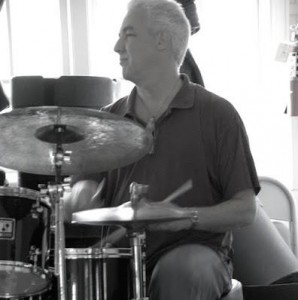
Carmi: ???????? vine (Hebrew) This is the English form of Hebrew karmiy, a vinedresser, or my vineyard. The word can also mean gardener.

Cayman: 1570s, from Portuguese or Spanish caiman, from a Carib word, or perhaps from a Congo African word applied to the reptiles in the new world by African slaves. The name appears to be one of those like anaconda and bom, boma, which the Portuguese or Spaniards very early caught up in one part of the world, and naturalized in another.

Chad: modernized form of the Old English given name Ceadda, influenced by the Welsh word cad meaning battle. The word cad in the perjorative sense comes from Italian cattivo, bad, and has nothing to do with Chad, who is one of the great guitar players.

Charles: Germanic *karlaz meaning free man, which survives in English as churl (< Old English ?eorl). In the form Charles, the initial spelling ch- corresponds to the palatalization of the Latin group ca- in Central French and the final -s to the former subjective case (le cas sujet) of masculine words in Old French (< Latin -us). The root meaning of Karl is old man, from Indo-European *?er-, where the ? is a palatal consonant, meaning to rub; to be old; grain.

Cheryl: English version of Cherie or Cher which in turn is the French form of the Latin Cara, which means dear. Whore also came from cara, which is what the Roman soldiers called prostitutes.
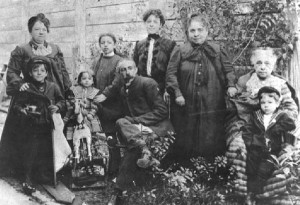
Chessι: Un nom de famille qui reprιsente un nom de localitι dorigine, nom de hameau landes et a du dιsigner loriginaire de cette localitι. Ralph Chessι, 1900-1991 (the little boy in the sailor suit on the far right), was the patriarch of a large creative family. As his son Bruce writes, Ralph was a Renaissance man in the grandest sense with diverse interests in the arts: theatre, sculpture, puppetry, painting, writing and music.
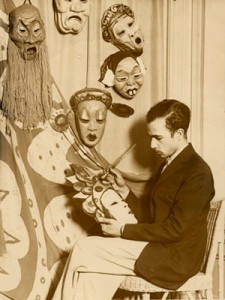
Joseph Alexander Chessι was born in 1802. He married (or lived with) a slave named Justine Olivier in 1830 and subsequently moved to New Orleans. On the census records all the Chessιs were listed as black.

A Chessι arrived with Bienville in 1698 at the mouth of the Mississippi. Bienville was the one responsible for the original survey to determine where the city of New Orleans would be located. The ships manifest has a Michael Chessι listed as a freebooter (pirate).

Chet: (Latin castra) means fortress or camp. It is an uncommon name of English origin, and originated as a surname to identify people from the city of Chester, England.

Chloe: (also Chloλ, Cloe, Chlφe, Chloι, Clowy, Kloe, Khloe, Khloλ, Khloι, Kloι or Kloλ), a first or given name for girls, especially popular in the United Kingdom. The name comes from the Greek ????, meaning young green shoot and is one of the many names of the Greek goddess Demeter.

Christopher: (sometimes Kristoffer or Kristopher) is the English version of a Europe-wide name derived from the Greek ??????????? (Christσpheros). The constituent parts are ??????? (Christσs), Christ, and ?????? (phιrein), bear: the Christ bearer.

Both Kris and Kristofferson are Scandinavian variants of Christopher.

Kristina can be the feminine form of ???????.
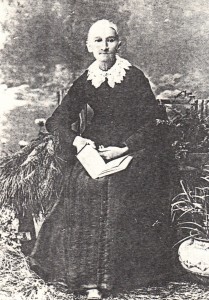
Clarke: an English surname, ultimately derived from the Latin clericus meaning scribe, secretary or a scholar within a religious order, referring to someone who was educated. Clark, Clarke evolved from clerk. First records of the name are found in 12th century England. The name has many variants. Still today, clerk is pronounced clark in Britain.
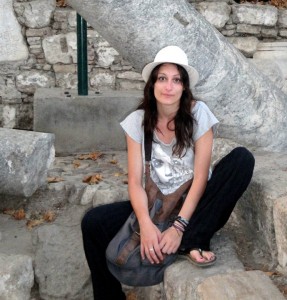
Cleo: Greek prefix often translated to mean pride, fame or glory. Also Clio.

Conrad: Derived from Germanic elements kuoni brave and rad counsel.

Cynthia: ??????, Kynthνa, from Mount Cynthus on the island of Delos. Cynthia was originally an epithet of the Greek goddess of the moon, Artemis, who was sometimes called Cynthia because, according to legend, the goddess was born on Mount Cynthus.

Dale: Old English dζl dale, valley, gorge, from Proto Germanic *dalan valley (Old Saxon, Dutch, Gothic dal, Old Norse dalr, Old High German tal, German Tal valley), from Indo European *dhel- a hollow. This name reflects the lasting Norse influence in north of England. A Neanderthal was someone from the Neander valley in Germany.

Daniel: ?????????? ?????? The first part of the name Daniel comes from the Hebrew verb  (din), meaning to judge, contend, plead. The second part is
(din), meaning to judge, contend, plead. The second part is  (El)the abbreviated form of Elohim God. God is my judge. God rules me. Danilo is one way to say Daniel in Spanish.
(El)the abbreviated form of Elohim God. God is my judge. God rules me. Danilo is one way to say Daniel in Spanish.

Darby: derived from Old Norse djϊr (deer), and the suffix bύr (farm/settlement). The oldest recorded surname dates to the period of 1160 1182 in Lincolnshire. The English city Derby is pronounced darby.

Dario, Darius: Latin D?r?us, D?r?us, Greek ???????, Aramaic drw, dryw, Elamite Da-ri-ya-(h)u-(ϊ-)i, Akkadian Da-(a-)ri-mu, Egyptian tr(w), trjw, intr(w), intrjw, Lycian Ρtarijeus-, and Old Persian D?rayau, are short forms of D?rayavau, composed of D?raya- [hold] + va(h)u- [good], meaning holding firm the good. My friend Dario is Italian from Belluno. Ciro (Cyrus) is also an often used Italian name.

Deborah: ????????? bee (Hebrew) Dvorah was a heroine and prophetess in the Book of Judges.

Diane (pronounced with long ? and ?) is an adjectival form developed from an ancient *divios, corresponding to later divus, dius, as in Dius Fidius, Dea Dia and in the neuter form dium meaning the sky. The name Diane is rooted in Indoeuropean *d(e)y(e)w, meaning bright sky or daylight, from which also derived the name of Vedic god Dyaus and the Latin deus, (god) and dies (day, daylight).

On the Tablets of Pylos a theonym ????? is supposed as referring to Diana, a deity precursor of Artemis.

The ancient Latin writers Varro and Cicero considered the etymology of D??na as allied to that of dies and connected to the shining of the Moon.
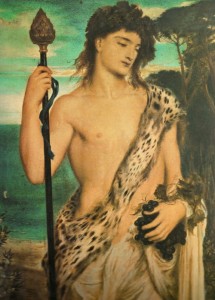
Dionysius: ???????? ???????? ????????? The dio- element has been associated since antiquity with Zeus (genitive Dios). The earliest attested form of the name is Mycenaean Greek di-wo-nu-so, written in Linear B syllabic script, presumably for /Diwo(h)n?sos/, found on two tablets at Mycenaean Pylos and dated to the 12th or 13th century BCE.
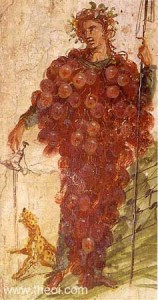
The second element -n?sos is associated with Mount Nysa, the birthplace of the god in Greek mythology, where he was nursed by nymphs (the Nysiads) but according to Pherecydes of Syros, n?sa was an archaic word for tree. Dionysus had been with the Greeks and their predecessors a long time, and yet always retained the feel of something alien. Variants include Dennis, Denis, Dion, Dionisio, Denison, Denny, Tennyson, Tyson.

Dennis: Greek and English origin, a follower of Dionysius.

Django: I awake. (Romani language nickname of Jean Reinhardt.) Django gave himself this name when he was quite young.

Donna: The word donna in Italian means woman. The materfamilias, the woman who was in charge of her Roman household was called the domina. This word came down into the Romance languages. In French it is dame, in Spanish dueρa and in Italian donna. The name has the idea of house (domus) and so is familiar and eternal. Dominus, the lord of the house, is derived from the Proto-Indo-European root *dem- (house). Dom in French, don in Spanish. In Church, we used to say Dominus vobiscum, Lord (go) with you. The response was Et cum spiritu tuo. And with thy spirit.

Dorothy: ??????? ????? (d?ron), gift + ????, god. Notice that Dorothy and Theodore are really the same name with the basic elements reversed.

Dupuis This name can mean from the well, at the well The Latin for well is puteus. It occurs, of course, in many languages. Names like Poggio, Dupuis, Atwell, Poηo, Inoue (Japanese), Pozzo, Pozo all connote someone who lived near a well.

Edmond: Old English Eadmund, from ?ad (prosperity) + mund (protection).

Edward: Old English Eadweard, prosperity-guard, from ead wealth, prosperity + weard guardian.

Edd: e?d (rich) Hell think thats rich.
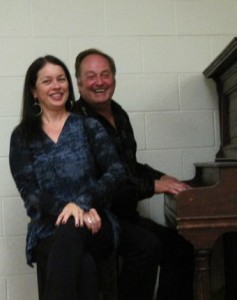
Elise ??????????? ???????? Elisheva Russian E???a?e?a My God is abundance. My God is an oath. Elizabeth, Elisabeth, Bettina, Betty, Tetty, Isabel, Isabella, Lisa, Elsie, Elsa, Liese, Lilli, Lillian, Lilliane. Elise can be a German variant transcription of Alice, but, more often, Elise is a contraction of Elizabeth (English, Greek, and Hebrew).

Liz and Elise both have the same name etymologically speaking.

Emily is the English form of the Latin Aemilia. The name is derived from the Roman clan name Aemilius, one of the five ruling clans of Rome descended from Mamercus Aemilios. Mamercus was given the surname of Aemilios for his eloquence and refinement. Numa Pompilius, the second King of Rome, named his fourth son Mamercus Aemilios and the great lineage of the Aemilios clan was from him. In the English-speaking world Emily was not common until after the German House of Hanover came to the British throne in the 18th century; the princess Amelia Sophia (1711-1786) was commonly known as Emily in English, even though Amelia is an unrelated name.

Engrid or Ingrid is Old Norse. The first element ING refers to a Germanic god of fertility, who was also known as Ingui or Yngvi. The second element could be fridr (peace, beautiful, fair) or rida (to ride). Thus the name can mean Ings beauty or Ings ride. The name was first used in the 13th century, but English speakers took it up only from the mid 19th century.

Esther: ????? star (Persian) Ishtar Hester
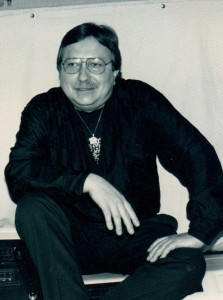
Eugene: ??????? (eugen?s), noble, literally well-born, from ?? (eu), well and ????? (genos), race, stock, kin. French Eugθne, from Latin Eugenius.

Eunice: ?????? good victory

Eve In Sanskrit the meaning of the name Eva (???) is one who gives life. In Hebrew ??? (?awwah, often anglicized as Chava) means life or living one.

Ezio: Aetius (Latin) and Aλtios (Greek) are older forms of Ezio. The name is derived from Aλtius, a Roman family of Etruscan origin, and Aλstios, Greek name from aietos (eagle). Flavius Aλtius was a 5th-century Roman general who defeated Attila the Hun at the battle of Chalon.

Farhat: used predominantly in the Turkish language, and it is derived from Persian and Turkish origins. From Turkish roots, its meaning is joy, bliss, happiness.

Finola: In Gaelic and Irish, the name Finola is a variant of Fenella: white shoulder, blonde.

Fletcher: arrow-maker, early 14th century (as a surname attested from 1203), from Old French flechier, from fleche arrow, probably from Frankish *fliugica (Old Low German fliuca, Middle Dutch vliecke). One meaning of fledger, still today in English, is someone who puts the feathers on arrows.

Fougeirol: une commune franηaise, situιe dans le dιpartement de la Haute-Saτne et la rιgion Franche-Comptι. Ses habitants sont appelιs les Fougerollais. Une fougθre is French for a fern, so there may be a connection there.

Frida, Frederick: frid peace, beauty ric power, ruler, Reich

Gabriela, Gabrielle, Gabriel: comes from the verb  (gabar), meaning to prevail, be mighty, have strength. The noun
(gabar), meaning to prevail, be mighty, have strength. The noun  (geber) means man. The word geber can be found in modern Israel on doors of mens bathrooms.
(geber) means man. The word geber can be found in modern Israel on doors of mens bathrooms.

The second part of the name Gabrielle is  (El), the abbreviated form of
(El), the abbreviated form of  , Elohim, God.
, Elohim, God.

George: from the Greek name ???????? (Georgios) which was derived from the Greek word ??????? (georgos) meaning farmer, earthworker, itself derived from the elements ?? (ge) earth and ????? (ergon) work. Yuri in Russian. Jordi in Catalan. Jψrgen (Danish), Jerzy, Jurek (Polish).

Gerard: ger, gar spear hard hardy, brave

German: Spanish for Herman. The name can also be one of relationship, and derive from the pre 8th century Old French word germain, meaning cousin or person of the same stock. Another possible origin is that people with the name were originally spear-men engaged as mercenaries by different monarchs throughout Europe. The derivation here being from the German word geri meaning spear plus man(n), meaning one skilled in its use.

Gudrun: run secret rune

Guy: Norman French form of WIDO. (Italian Guido) The Normans introduced the name Guy to England, where it was common until the time of Guy Fawkes (1570-1606) when it virtually disappeared and is only now returning.

Haas: Old Dutch *haso, from Proto-Germanic *hasτ and Jewish (Ashkenazic): Hase hare, hence a nickname for a swift runner or a timorous or confused person, but in some cases perhaps a habitational name from a house distinguished by the sign of a hare. As a Jewish name it can also be an ornamental name or one of names selected at random from vocabulary words by government officials when surnames became compulsory.

Hart: Old English heorot hart, stag, male deer, from Proto-Germanic *herut- (cf. Old Saxon hirot, Old Frisian and Dutch hert stag, deer, Old High German hiruz, Old Norse hjφrtr, German Hirsch deer, stag, hart), perhaps from the Proto Indo European root *ker- horn. (Cyrillic spelling ????) Now this word hart denotes a male red deer after its fifth year. The hind is the female. Roger Hert appears in the Pipe Rolls of Norfolk in the year 1166, and Simon le Hert is noted in the tax rolls known as the Feet of Fines for the county of Kent in 1194. One of the earliest settlers in the New World was John Hart, who embarked from the Port of London, aboard the ship Phillip, bound for Virginia in June 1635. The first recorded spelling of the family name Hart is shown to be that of Aelfric Hort, which was dated circa 1060, in the Olde English Byname Register, Hampshire, during the reign of King Edward, known as The Confessor, 1040 1066.

Heather, Heidi is from the English/German (die Heide) word for the variety of small shrubs with pink or white flowers which commonly grow in rocky areas. It is derived from Middle English hather. Heath is a male version. Heather is also a color, a light purple shade with a hint of grey.

Heidi is also a German diminutive of Adelheid. Heid is a noun maker in German. For example, Adel is noble and Adelheit is nobility. Pagus is the Latin word for district and it refers to a non city environment, the country. So, a paganus, a rural dweller, was not civilized and was a pagan. Similarly, with someone who lived on the heath, there was a sense of not having city ways and thus the person was a heathen. Thus, pagan is Latin and heathen is Germanic.

Herman: her army, warrior Herzog Arminius

Holly: the name of the plant, from the Old English word holen.

Hoekstra is a Frisian name that means from the hook or from the corner. Frisian is the language spoken in Friesland, a province of the Netherlands. Comprised of the northwestern portion of the Netherlands mainland, along with a major portion of the Frisian Islands (a chain which extends from the Netherlands into Germany), this province is populated by an ethnic people whose language and customs are more closely related to the English than the Dutch.
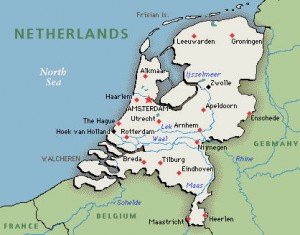
The Hoekstras may have lived at a crossroads (corner, hook) or that their ancestors originated from the Hoek of Holland. The suffix -stra is Frisian, and is used in place of the Dutch prefix van, meaning from or of. Hookster might be an English equivalent of Hoekstra.

Homs: (Arabic: ???? ?im?), previously Emesa (Greek: ?????, Emesa), a city in western Syria and the capital of the Homs Governate. It is 501 metres (1,644 ft) above sea level and is located 162 kilometres (101 mi) north of Damascus. Located on the Orontes River, Homs is also the central link between the interior cities and the Mediterranean coast.

Houston: Hughs town, a habitational name from a place near Glasgow, so called from the genitive case of the medieval French given name Hugh, from the Germanic element hug, meaning heart, mind, or spirit.

The second element of the name Houston comes from Middle English (1200 -1500) tune, toun, settlement, village, derived from the Old English pre 7th Century tun, enclosure, settlement. Town might be the oldest word in the English language.

Howard: of Middle English origin, the first part of Howard can come from the same root as Houston, that is, hug, heart, mind, spirit, added to hard, hardy, bold, strong. Yet another derivation is haward, high guardian.

Huget: from an Old High German word related to hugu mind, soul, thought.
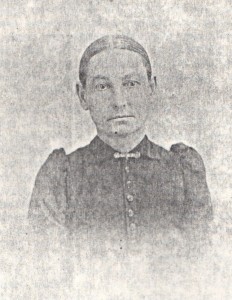
Irene: ?? ????? Irene ?????????? ??? ?? ???????? Irene, ?? ????? ???????? ????????? ??? ????????? ??????. The name Irene is derived from the Latin Irene and was written ?????? in Greek. ?????? is the goddess of peace. ????????? means peaceful.

Jacob: ??????? ??????? The English names Jacob and James derive from the same source, with James coming from Latin Iacomus, a later variant of Iacobus. In England, Jacob was mainly regarded as a Jewish name during the Middle Ages, and the variant James was used among Christians. The name meansheel (in the Genesis narrative, Jacob was born grasping Esaus heel and later bought/stole (?) Esaus birthright. Jacob can also therefore mean supplanter.). Jacob came into general use as a Christian name after the Protestant Reformation. Coby, Coos, Jake, Jack, San Diego, Iago, Santiago, all are variants of Jacob. The time when James I came to the throne of England from Scotland, where he was James VI, is called the Jacobean Period to distinguish that time from the Elizabethan which came before and the Hanoverian which came after.

Janis: Sanskrit has a word janis that means a woman, but Janis is usually thought to be derived from John: Latin Iohannes, from New Testament Greek ???????, contraction from Hebrew ???????? (Johanan) J???n?n, perhaps from a former ?????????? (Yehochanan) J?hτ??n?n, meaning God is gracious.

Jennifer: Welsh Gwenhwyvar (Guinevere), from gwen fair, white + (g)wyf smooth, yielding. Espinosa, Espinoza, her surname, means thorny from Latin spina.
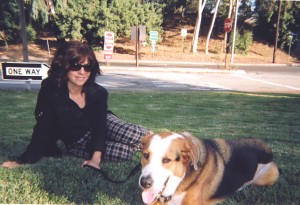
Jill: Latin sweetheart or youthful.

Jill was used as a short form of the female given names Jillian and Gillian, and now it is often an independent name.

Joel jo Yahweh, Jehovah el god

John: The first element is  , which is the abbreviated form of the appellative
, which is the abbreviated form of the appellative  , which in turn is YHWH, the Name of the Lord. The second part of the name comes from the verb
, which in turn is YHWH, the Name of the Lord. The second part of the name comes from the verb  (hanan) meaning be gracious, pity, beseech, implore. Yahweh Has Been Gracious. Yahweh Is Gracious. The Lord Graciously Gave.
(hanan) meaning be gracious, pity, beseech, implore. Yahweh Has Been Gracious. Yahweh Is Gracious. The Lord Graciously Gave.
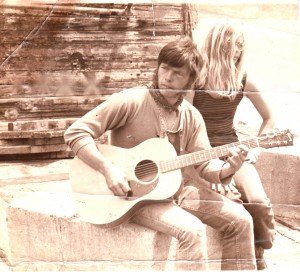
Joseph: The name can be translated from Hebrew ???? ?????? Yihoh Lhosif as signifying YHWH (Yahweh) will increase/add. Biblical son of Jacob and Rachel, from Late Latin Joseph, Josephus, from Greek Ioseph, from Hebrew Yoseph (also Yehoseph, cf. Ps. lxxxi:6) adds, increases, causative of yasaph he added.

Julie, Julia: Latinate feminine form of the name Julius. Julius was a Roman family, derived from a founder Julus, the son of Aeneas and Creusa in Roman mythology, although the names etymology may possibly derive from Greek ?????? downy-haired, bearded or alternatively from the name of the Roman god Jupiter, Jove (adjective Iovilios, Iovilius).
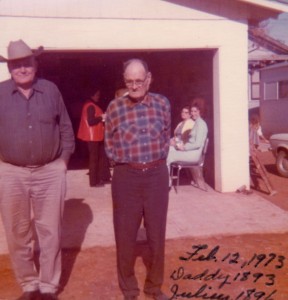
Julius: Latin Iulius, name of a Roman gens, perhaps a contraction of *Iovilios pertaining to or descended from Jove.

Karen: medieval variant of Katharina, Catherine. Katharos which means pure. The name evolved as a Scandinavian form of Katharina. It could also be derived from the phonetically similar Latin word carus (dear).

Kate: short form of Katherine, from Latin, French, English, and Welsh origins. The name literally means either pure or blessed. The Greek word Catharsis is from the same root.

Knight: Old English cniht (boy or servant), cognate of the German word Knecht (servant, bondsman). This meaning, of unknown origin, is common among West Germanic languages (Old Frisian kniucht, Dutch knecht, Danishknζgt, Swedish knekt, Norwegian knekt, Middle High German kneht, all meaning boy, youth, lad, as well as German Knecht servant, bondsman, vassal). Anglo-Saxon cniht had no particular connection to horsemanship, referring to any servant. A r?dcniht (meaning riding-servant) was a servant delivering messages or patrolling coastlines on horseback. Old English cnihth?d (knighthood) had the meaning of adolescence (period between childhood and maturity) by 1300.

Kurt: Low German short form of Conrad. Derived from the Germanic elements kuoni brave and rad counsel. Kurt is nominative and accusative. Kurts is genitive and Kurti is dative. Curd, Curdt, Curt, Kunto, Kurd, Kurre, Kurth, Kurtti. (may be from Proto-Indo-European root *gher-)

Lange German feminine long. So lange wie mφglich. As long as possible.

Laura: Feminine form of the Late Latin name Laurus, which meant laurel.

In ancient Rome the leaves of laurel trees were used to create victors garlands.

When a woman is graduated from a university in Italy, she is said to be laureata, and instead of a cap and gown she wears laurel leaves.

Lee: Shelter, sheltered from the storm in Old English. The leeside of the island is the opposite side from windward.

Lee is the most common surname on Earth, but it is this womans middle name.
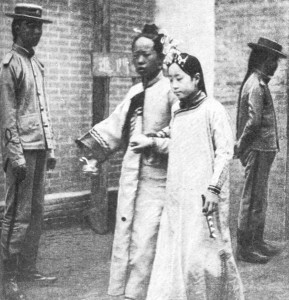
People named Lee are so great in number because the Chinese Li is often spelled Lee in English. Lee or Li is written with the characters ? tree + ? children, and means plum tree.

A legend about the Li family is that those who are the directly descended from rebel Emperor Zhuanxu have a genetic trait noticeable in their feet. The last toe on each foot would be pointing inward a little rather than being straight like the rest of the toes. In addition, the nail on this foot has two sections, with one section appearing to override the other. According to the legend, this distinguishes the true Lis from the other families with the name, who were born with perfect feet.
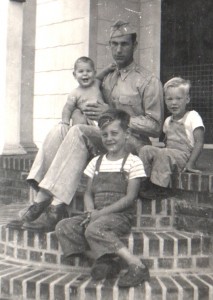
Leland: Laege = fallow. Place name, which meant meadow land, fallow land, pasture ground in Old English. Leah meaning wood, clearing or meadow and land.

Lillian: Used since the sixteenth century, possibly originally a pet form of Elizabeth, but generally accepted as a variant of Late Latin lillium lily.

Linda: the linden tree, from Germanic lind meaning soft, tender ultimately from a Celtic root. Linda may also come from the Latin (Italian, Spanish, Portuguese) word linda, which is the feminine form of lindo, meaning beautiful, pretty, cute or clean.

There is a Japanese concept that has the same connotation of cute, small, clean that Linda does. It is kawaii (????), which can mean it is clean, pretty, neat. One hears this word a lot in Japan, the land of the cute. Kawaiiii des neeee! It often seems as if teenage girls, who are very kawai themselves, use this word in every other sentence.

???? means, lovable, cute, or adorable and is the quality of cuteness in context of the Japanese culture.
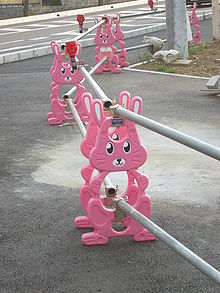
The word kawaii is formed from the kanji ka (?), meaning acceptable, and ai (?), meaning love. Kawaii has taken on the secondary meanings of cool, groovy, acceptable, desirable, charming and non-threatening. All of which describe Linda very well. By the way, these are construction barriers at Narita airport in Tokyo. Can you imagine such a thing here in the macho USA? A Japanese girl seeing this barrier in Tokyo would say, Kawaiiiiiiii!

Lucie Feminine form of Lucius with the meaning light (born at dawn or daylight, maybe also shiny, or of light complexion). Luce in Italian, Luz in Spanish, Lucy in English.

Lynn: From place names in Norfolk and Scotland, Scottish Gaelic linne (stream, pool) or from corresponding Old English/Celtic words.

Margaret: (??????????) pearl. Margaret may be related to the Sanskrit word ?????? maρjar?. Also Margaret might be of Persian origin, derived from marvβrid (???????), a pearl or daughter of light. Many, many variations: Maggie, Madge, Marge, Meg, Megan, Mog, Moggie, Rita, Daisy, Greta, Gretel, Gretchen, Magee, Marg, Margot, May, Molly, Margo Sanna, Margi Meggie, Peggy and Peg. Margherita (Italian). A tequila margarita looks very like a pearl.

Marc, Mark: ?????? from Etruscan Marce of unknown meaning, Mars?

Marshall: early 13th cenutry surname; mid-13 century as high officer of the royal court; from Old French mareschal commanding officer of an army; officer in charge of a household (Modern French marιchal), originally stable officer, horse tender, groom (Frankish Latin mariscaluis) from Frankish *marhskalk horse-servant (Old High German marahscalc groom, Middle Dutch maerschalc), from Proto Germanic *markhaz horse + *skalkaz servant ( Old English scealc servant, retainer, member of a crew, Dutch schalk rogue, wag, Gothic skalks servant). Cognate with Old English horsώegn (horse thane). From c.1300 as stable officer; early 14c. as military commander, general in the army.

Mari, Mary, Marie, Miriam English versions of the name Maria, which was in turn the Latin form of the Greek names ?????? and ?????, or Maria, forms of the Hebrew name ??????? or Miryam. Spice ??? m-r-r meaning bitterness found on the hillside in Israel (myrrh could be a form of this name), used, as rosemary was, to heighten the taste of food. Salsa!

Mari has hundreds of variants, among them, Molly, Meg, Peg, Margaret, the list is almost endless. Other meanings can include rebelliousness (??? m-r-y), or wished for child or Our Lady (?? ???? Sha Mrih) or beloved lady, referring to the Christian reverence for the Virgin Mary. Mary/Mari/Miriam could also be a name of Egyptian provenance, perhaps from the word elements mry, meaning beloved or mr, meaning love.

Matilda: French Mathilde, of Germanic origin, literally mighty in battle; Old High German Mahthilda, from mahti might, power + hildi battle, from Proto Germanic *hildiz battle, from Indo European *kel- (1) to strike, cut.

Melina (bee) can be a combination of Mel with the suffix -inda. Mel can also be derived from names such as Melanie meaning dark, black in Greek (melanin), or from Melissa meaning honeysuckle.. Melina is also associated with the Greek word meli, meaning honey, and with linda, meaning gentle, soft, tender in the Germanic languages. Melina was the name of a nymph that cared for the young Zeus.

Michael ???????? (Mikhael) meaning who is like God? The patron saint of soldiers. Common in all languages, but especially Russian ??????. Romania (Mihail), Poland (Micha?), and Portugal (Miguel). In the Roman dialect Michele is often pronounced Mige.

Monica is an ancient name of North African origin whose etymology is unknown. The earliest reference to the name is found in ancient Numidian inscriptions. The name might include a reference to the ancient Libyan god Mon. It has also been posited that it may have been derived from the Latin monere, meaning to advise. Saint Augustines mother was named Monica, and she was born in Numidia, North Africa, although she also was a citizen of Carthage, and so her name may be of Punic origin.

Nicole means victorious people, evolved from a French feminine derivative of the name Nicholas and ultimately from Nike, victory. The town of Nice in France is named for this goddess.

Niehaus: Topographic name from Middle Low German nie new + hus house or a habitational name from a common North German and Westphalian farm name with the same meaning.

Nigella Sativa is an annual flowering plant, native to south and southwest Asia, but the womans name Nigella is most likely a diminutive of Nigel, which name is derived from the Latin Nigellus from the Latin niger, meaning black. The Latin word nigellus gave birth to Old French neel (modern nielle), meaning black enamel (same word as niello).

Nina: Brought into English in the nineteenth century, apparently from several sources. Many borrowings are of Russian ????, the name of a Georgian fourth century saint, also known as Nino, of obscure origin and meaning, possibly connected with the Assyrian king Ninus. Other sources are, for example, the Italian diminutives like Annina from Anna and Giovannina from Giovanna.

The name Noah ( ) comes from the verb
) comes from the verb  (nuah) meaning rest, settle down. Derivatives of this root are:
(nuah) meaning rest, settle down. Derivatives of this root are:  (nahat), rest, quietness;
(nahat), rest, quietness;  (noah), the name Noah;
(noah), the name Noah;  (nihoah), quieting, soothing;
(nihoah), quieting, soothing;  (hanaha), a giving of rest;
(hanaha), a giving of rest;  (manoah), resting place;
(manoah), resting place;  (menuha), resting place, rest.
(menuha), resting place, rest.

Noel: Latin (dies) natalis, referring to the nativity of Christ, the original French spelling being Noλl and Noλlle.

Obama: an African surname. It is a fairly common Luo name, and it is derived from Swahili referring to members of the Luo tribe who converted to Islam.

Obama is also Japanese and it means little beach. The Obama family (???) were a samurai clan of feudal Japan.

The third line is written in kanji and the first character is o little. The second character is hama beach. Japanese sound laws are such that when you put o and hama together, the pronunciation is obama (little beach).
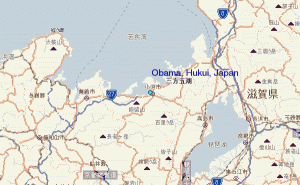
Obama-shi (Obama city) is of course right on the water. (Its the little blue green dot.)

This is Obama written in katakana, the alphabet used for foreign names, and it specifically refers to the President and not to the town of Obama.

Oscar: The name is derived from two elements in Irish: the first, os, means deer; the second element, cara, means friend. It can also be Old English ?s (god) and g?r (spear). (Oswald, Osborn, Oswid, Osric, Oslak), so it depends upon whether the person is Irish or English. This Oscar is English.

Osmond: os god divine mond protector

Oswald: Anglo-Saxon name meaning divine ruler, from os (god) and weald (rule).

Patterson: A patronymic meaning son of Patrick, which in turn derives from patricius, nobleman, in Latin. The name is first found in Ross-shire where the Pattersons had a family seat from early times and the first mentions come from census rolls taken by the early kings of Britain to determine tax rates for their subjects. Patterson, Paterson, Pattersen, Pattison. Another possible origin: pater father in Latin and son.

Paul: The Greek word  (pauros) means feeble or little, and
(pauros) means feeble or little, and  means to pause, stop, retrain, desist.
means to pause, stop, retrain, desist.

After his humbling conversion experience, Saul of Tarsus became known as Paul, a man who wrote over half of the New Testament.

Paula: Roman family name Paulus meant small or humble in Latin as it did in Greek. The Latin, Paulo post means a little after. Pablo, Pavel, Palle (Danish), Paolo, Pαl (Swedish), Paulino are all variants of Paula.

Penelope: Greek ???? (pene) threads, weft and ?? (ops) face, eye. In the Odyssey this is the name of the wife of Odysseus, she who was the weaver.

Perry: English origin from either Old English pyrige (pear tree), or the Norman French perrieur (quarry), possibly referring to a quarryman. Perry was recorded as a surname from the late 16th century in villages near Colchester, Essex, East England, such as Lexden and Copford.

Pettigrew: One theory is that this name is originally derived from the Old French words petit, meaning small or little, and cru, meaning growth. The phrase petit cru, meaning in this context, small person, was introduced into Britain after the 1066 Norman invasion, when French became the official language. Originally petit cru was used as a nickname of endearment. I always thought that Pettigrew had a common origin with pedigree. The word pedigree is a corruption of the French pied de grue or cranes foot, because the typical lines and split lines in a family tree or pedigree resemble the thin leg and foot of a crane (grue).

Piliwale: The Piliwale sisters were four kupua creatures with sharp teeth, stick-like arms and legs, claw-like hands, and huge, swollen bellies. They were able to cause landslides and floods, but their greatest power, if you could call it that, was their appetite. Pili wale means to cling without reason or cause. The term is often used to describe people who live off of others without giving anything in return. When you visit T?t?, dont you dare be a Piliwale, means that youd better help out. The Piliwale stones of H?ena stand as a warning to people who are pili wale, and old-timers of the district like to say, H?ena is not the place for a Piliwale to visit.

This is Silver Piliwale, a direct descendant of Piliwale, who was the tenth Alii Aimoku of Oahu. Piliwale reigned as the titluar chieftain or King of the island of Oahu and all the territories Oahu claimed at the time. His wife was the High Chiefess Paakanilea, descent not known. The name Silver is probably related to Silva, a Portuguese name that meant forest or wood as in Silva, Sylvia, Sylvania. This man is my wifes grandfather. He is something of a legend in the Hawaiian Islands. Many streets, valleys and other geographical sites there are named for him.

Rachel (Hebrew: ?????, Standard Ra?el Tiberian R???l, R???l; also spelled Rachael, meaning sheep; one with purity.

Raquel is Spanish for Rachel.

Rafael, Rafaela: Hebrew ??????? (Rafael) God has healed.

Ralph: Short form of Radulf, from Old Norse Raπulfr (Old English Rζdwulf), wolf-counsel, from raπ counsel (read, rat, rad) + ulfr wolf.

Reinhard: rein pure hard hardy, brave

Richard: Middle English Rycharde, from Old French Richard, from Old High German Ricohard, from Proto Germanic *rik- ruler + *harthu hard. One of the most popular names introduced by the Normans.

The rich in Richard is cognate with Reich, so meaning power, kingdom, might, and hard meaning strong, bold, hardy. Strong power, strong ruler, strong kingdom.

Robbie, Robert: Old North French form of High German Hrodberht bright with glory.

Robert or Roberta is derived from hrod- fame, glory + -berht bright.

Rollins: (Rolin, Rolins, Rollin, Rollins, Rollings) Norman French, derived from either Rolf or Rollo, popular throughout the European continent 500-1000 CE.
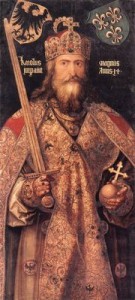
The Normans introduced Rolf and Roul both meaning Fierce wolf in 1066, and Rolin or Rollin is a diminutive Little fierce wolf.
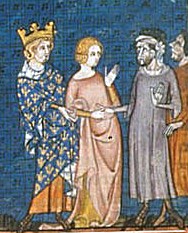
I read the French national epic, La Chanson de Roland, when I was twenty-two, twenty-three, read it in the original. Its an action story, so not that difficult. Roland held the passes in the Pyrenιes for Charlemagne. Orlando Furioso by Ariosto (XVI century) is another version of the same story. (Rolin, Roland, Rolins, Rollin, Rollins, Rollings)
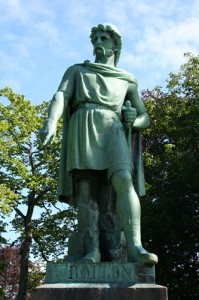
Examples of Rolf or Rollo are to be found in the surviving church registers of the city of London, including Andrieu Rolin (Andrew Rollins!).
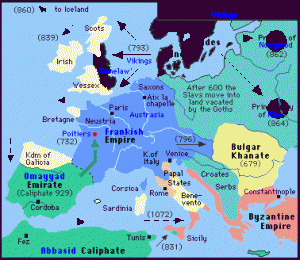
The first spelling of the family name in England is John Rolins (another version of Shane Rollins). This was dated 1327 in the Subsidy Tax Rolls of Suffolk during the reign of King Edward III.

Russo: In Italian, to say Russian, you say russo, meaning the language or the nationality, but I think that Russo may also have meant red (rosso) and even Russia itself can mean red. Nella seconda metΰ del IV secolo, says one source, alcune fonti riferiscono della tribω dei Rosolani, che vivevano nel bacino del fiume Ros (tributario del Dnepr, vicino lodierna Kiev), che cominciarono ad usare frequentemente la parola Rus, referring to the origin of the word Russia being derived from the Ros river, a tributary of the Dnieper. Thus, to the Italians Russo calls to mind Slavic tribes who migrated into Italy very early. However that may be, I am still holding out for Russo being at least partially related to Rosso, red. The name is very common in Italy, and it also calls to mind the French name Rousseau.

Ruth: ??? rut, possibly from the Hebrew for companion. In Israel Ruti is a common nickname for Rut (Ruth). Ruthie, Tootie, Tootsi, Tuti are all variants of Ruth.
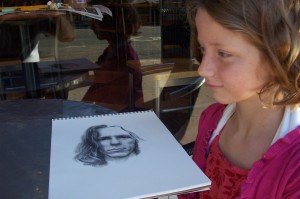
Samantha might be from Samuel with the addition of anthos, Greek for flower.

Samantha: could also be derived from an Aramaic noun ?????? (em?anta, listener). This calque of the name could also relate to the story of Samuel, who heard God.

Samuel: The first part of the name comes from the Hebrew word  (shem), meaning name, and the second part of the name Samuel is
(shem), meaning name, and the second part of the name Samuel is  (el) God. In between these two elements is the letter waw, which is a linguistic coupling, so that the name Samuel could mean Name Of God. This name could be a relative of Ishmael and, if so, would be derived from
(el) God. In between these two elements is the letter waw, which is a linguistic coupling, so that the name Samuel could mean Name Of God. This name could be a relative of Ishmael and, if so, would be derived from  (shama) to hear, listen to, obey and
(shama) to hear, listen to, obey and  el which would fit the story of Samuel a bit more closely, since it would mean Hear God. In Israel, Shmuel can mean Samuel and Shlomo can mean Sam.
el which would fit the story of Samuel a bit more closely, since it would mean Hear God. In Israel, Shmuel can mean Samuel and Shlomo can mean Sam.

Schuyler: Dutch surname scholar, student (from Germanic schul), brought to America by seventeenth century Dutch immigrants. The surname Schuyler was originally introduced in North America by 17th century settlers arriving in New York. It became a given name in honor of prominent members of the New York family, such as Philip Schuyler, and so became the given name of Schuyler Colfax, the 17th vice president of the United States.

Shane: Anglicised version of the Irish Seαn, which is John. Shane comes from the way the name Seαn is pronounced in the Ulster dialect, as opposed to Shaun or Shawn.

There are many, many interesting variants of Shane in many, many languages. Gjon (Albanian), Yahya (Arabic), Ganix, Ion, Jon (Basque), Ioannes (Biblical Greek), Yann, Yannick (Breton), Ioan, Ivan (Bulgarian), Joan (Catalan), Jowan (Cornish), Ghjuvan (Corsican), Ivan, Janko (Croatian), Ivan, Jan, Janek, Honza (Czech), Jens, Jannick (Danish), Jan, Johan, Johannes, Hanne, Jo, Joop, Hans (Dutch), Jaan, Johannes, Juhan (Estonian), Jani, Janne, Hannu (Finnish), Jean, Yann, Jeannot, Yanick, Yannic, Yannick (French), Xoαn (Galician), Ivan, Jovan, Janko (Serbian), Jαn, Janko (Slovak), Juoan, Xuan, Juanito (Spanish),Jens, Hampus, Hasse, Janne (Swedish), Ivan (Ukrainian),Evan, Iefan, Ieuan, Ifan, Ioan, Iwan, SiςnIanto (Welsh).

Sidiropoulos: ???????????? Sidiros = iron and -opoulos is a patronymic, that is, this name can mean son, daughter of iron. Iron was a precious commodity in Greece, but you could also make a case for this name meaning Smithson, since a smith is an iron worker. The daughter of a Sidiros would be a Sidiropoulou, but Greeks now keep the same surname over the generations. Papadopoulos, for example, the most common Greek surname, means son of a priest.

In Scandinavian, the name Sigourney means conqueror. Sigourney can be a male or female name.

Silvia: Feminine form of Silvius, from Latin silva (forest). In Roman mythology, Rhea Silvia was the mother of famous twins Romulus and Remus, the founders of Rome.
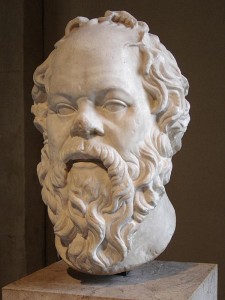
Socrates: ???????? derived from ??? (sos) whole, unwounded, safe and ?????? (kratos) power.

Sophia: ?????, the Greek word for Wisdom.

???????: of the cross, Cross Greek ???????, from ??????? meaning cross. This can be a given name (Stavros) or a family name. Both given name and family name are very common in Greece.

Stephen: ???????? crown was a deacon who was stoned to death, as told in Acts in the New Testament, and he is regarded as the first Christian martyr. Esteban or Estavan in Spanish. Sometimes Steffen and Steven in English.

Suzanne: Hebrew name ??????????? (Shoshannah). This was derived from the Hebrew word ???????? (shoshan) meaning lily (in modern Hebrew Shoshannah also means rose).

Tara: a female Buddha and a goddess in Hinduism. Tara is sometimes written/translated as Dara, meaning star. In Irish Gaelic, the Hill of Tara, or Teamhair na Rν, was the seat of the kings of Ireland from neolithic times (c. 5000 BC) to the 6th century or later. Tara is then taken to mean Queen.

Tatiana: Feminine form of the Roman name Tatianus, a derivative of the Roman name Tatius. Tatiana was the name of a 3rd-century saint who was martyred in Rome under the emperor Alexander Severus. She was especially venerated in Orthodox Christianity, and the name has been common in Russia and Eastern Europe. The name Tatiana was not regularly used in the English-speaking world until the 1980s.

Teagen comes from the Welsh word teg, which means beautiful or fair. Teagen may be related to the Irish name Tadgh or Taidgh, which means poet. Some of the variants are Teigue and Teige, which could have transformed into Tegan or Teagan. As a surname, it most likely arose as a patronymic, McTeague or McTague, meaning son of Teague. The surname is Irish in origin, specifically from the region of Connacht.

Thomas: ????? Greek form of the Aramaic name ????????? (Taoma) which meant twin. In England the name was introduced by the Normans and became very popular due to Saint Thomas ΰ Becket, 12th-century archbishop of Canterbury and martyr. Another notable saint by this name was the 13th-century Italian philosopher and theologian Thomas Aquinas, who is regarded as a Doctor of the Church. Tom, Tommy, Maas (Dutch), Masaccio (Italian), Tomasso are variants of Thomas.

Timothy: ???????? meaning honoring God, in Gods honor, or honored by God
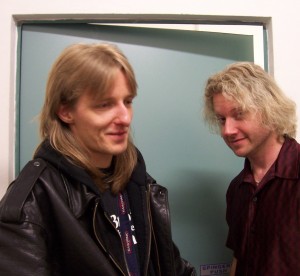
Thorstein: In Norwegian, the name Thorstein means thors rock. The name Thorstein orginated as an Norwegian name. Thorstein is most often used as a male name.

Torsten: Scandinavian given name: The Old Norse name was ήσrsteinn. It is a compound of the theonym Thor and sten stone.

Tristan: originates from the Brythonic name Drust or Drustanus. It derives from a stem meaning noise, seen in the modern Welsh noun trwst (plural trystau) noise and the verb trystio to clatter. The name is perhaps also influenced by the Latin root tristis (tant triste in the medieval French version of the myth), meaning sad or sorrowful.
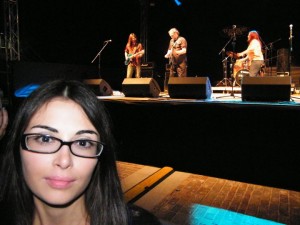
Veronica: Latin form of Berenice, influenced by the Church Latin phrase vera icon true image associated with the legend of Saint Veronica who wiped the face of Jesus on the way to Calvary. Or more probably from the ancient greek ???????? she who brings victory.

Vesper: ( late 14th century) the evening star, from Old French vespre, from Latin vesper (masc.), vespera (fem.) evening star, evening, west, related to Greek hesperos, and ultimately from Proto Indo European *wespero- (Old Church Slavonic ve?eru, Lithuanian vakaras, Welsh ucher, Old Irish fescor evening), from root *we- down (Sanskrit avah down, downward). Meaning evening is attested from c.1600.

Vitale: Italian and Jewish (from Italy) from the medieval personal name Vitale (Latin Vitalis, a derivative of vita life). The name was popular with Christians as a symbol of their belief in eternal life, and was borne by a dozen early saints; it became especially popular in Emilia-Romagna because of two saints, San Vitale of Bologna and Ravenna. As a Jewish personal name it represents a calque of the Hebrew personal name Chayim life. Compare Hyams. I have explored the church of San Vitale in Ravenna, a beautiful place.

Walter: (wald, power) Old North French Waltier (Old French Gautier), of Germanic origin; cf. Old High German Walthari, Walthere, ruler of the army, from waltan to rule (wield) + hari host, army.

Walton: Prefix wald (a wood), or walh, a farm worker or walesc a foreigner. The suffix is -ton, a town. I would have thought wall town.
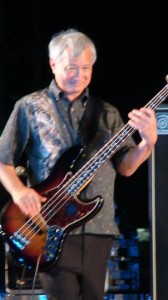
This Wesley is named for John Wesley, the founder of Methodism, who was born on the same day I was. The wes portion of the name refers to the Western cardinal direction, while the word lea refers to a field, pasture, or other clearing in a forest. Thus, the names origin refers to a western lea, or a field to the west.

Wilhelmina: In German it was spelled Wilhelmine, resolute, will, helmet. This is my beautiful mother and she was named for the queen of the Netherlands.

William Willahelm, composed of the elements wil will, desire and helm helmet, protection.

Names are music, full of meaning, rich and potent.
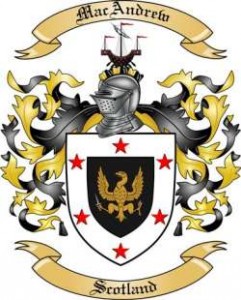
_______________________________________________





